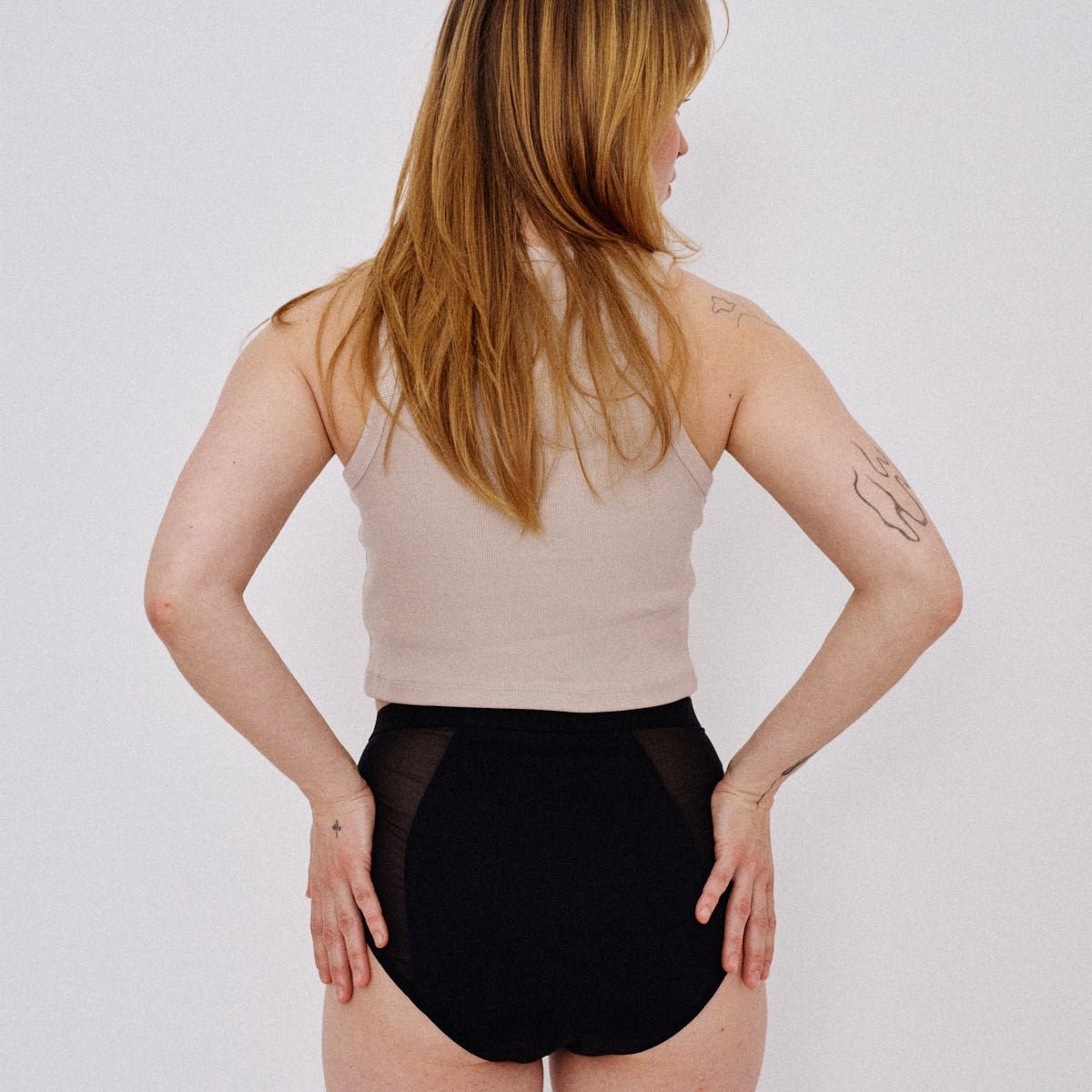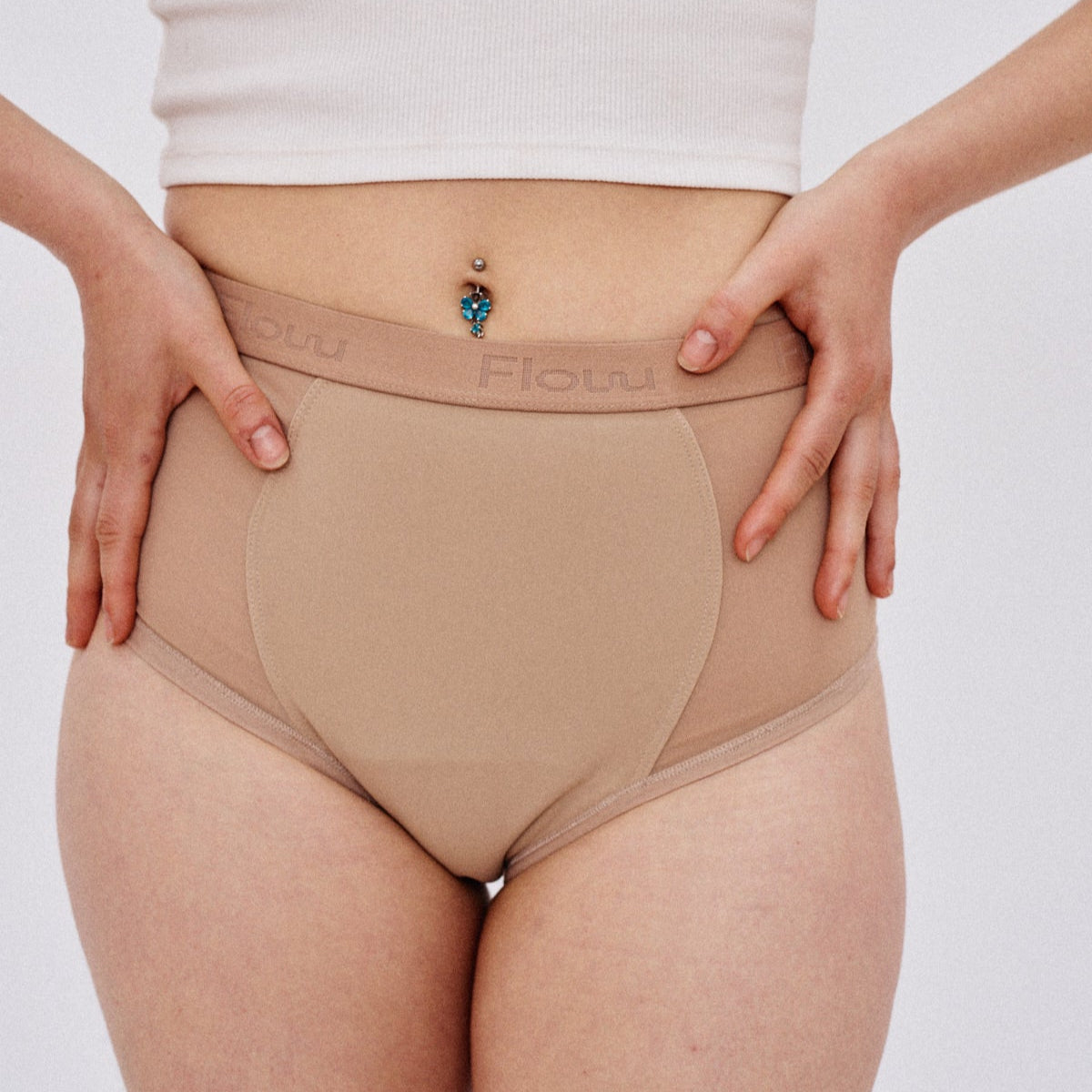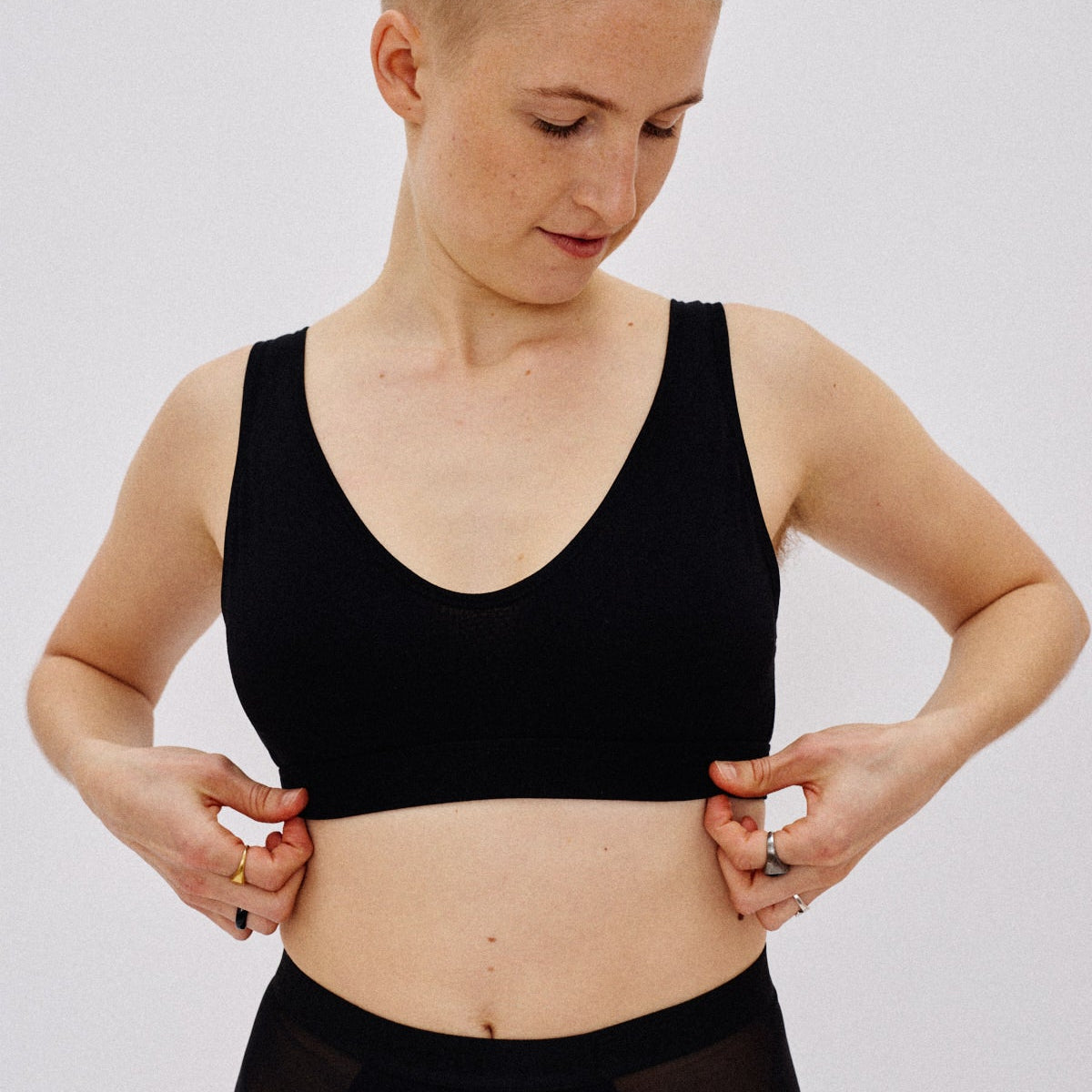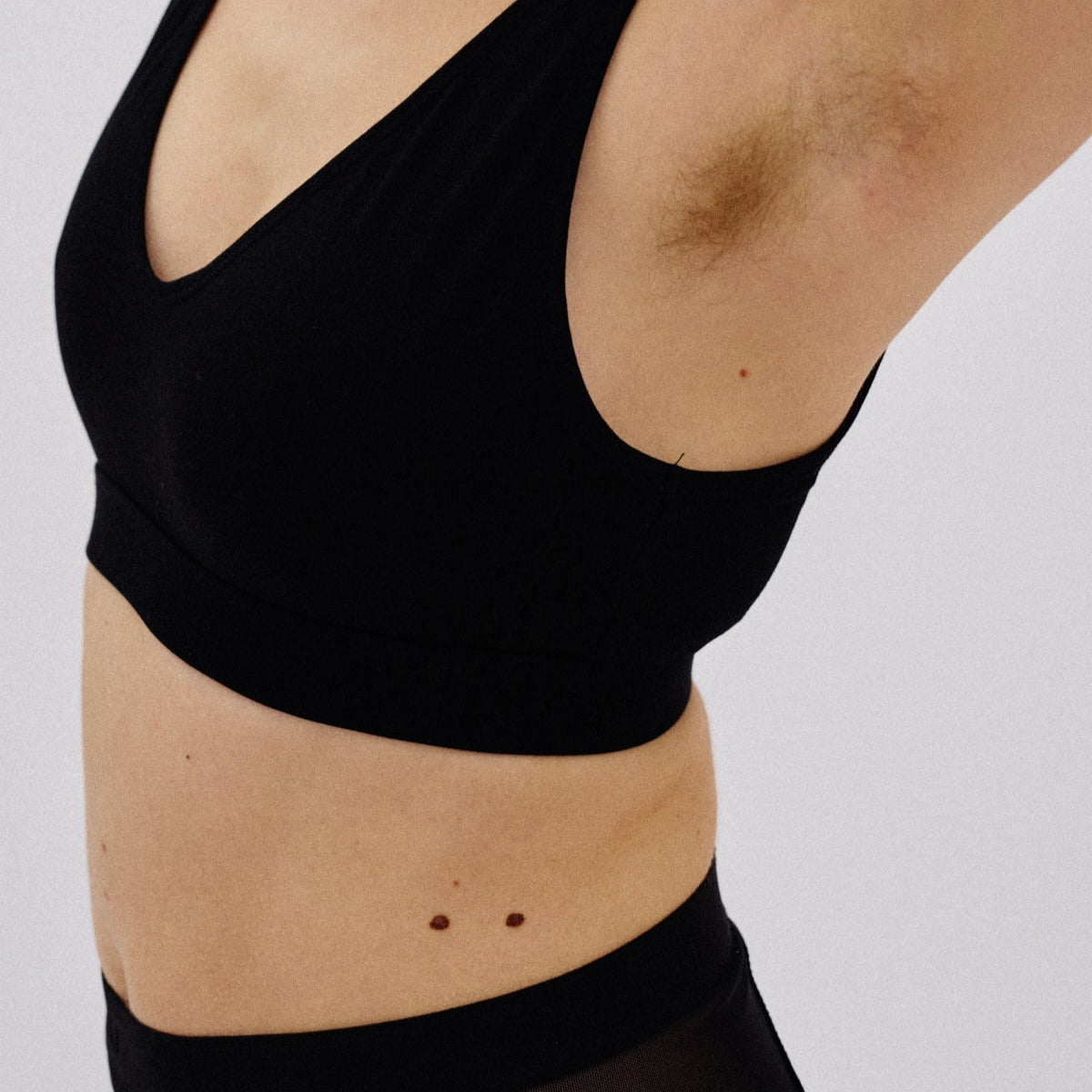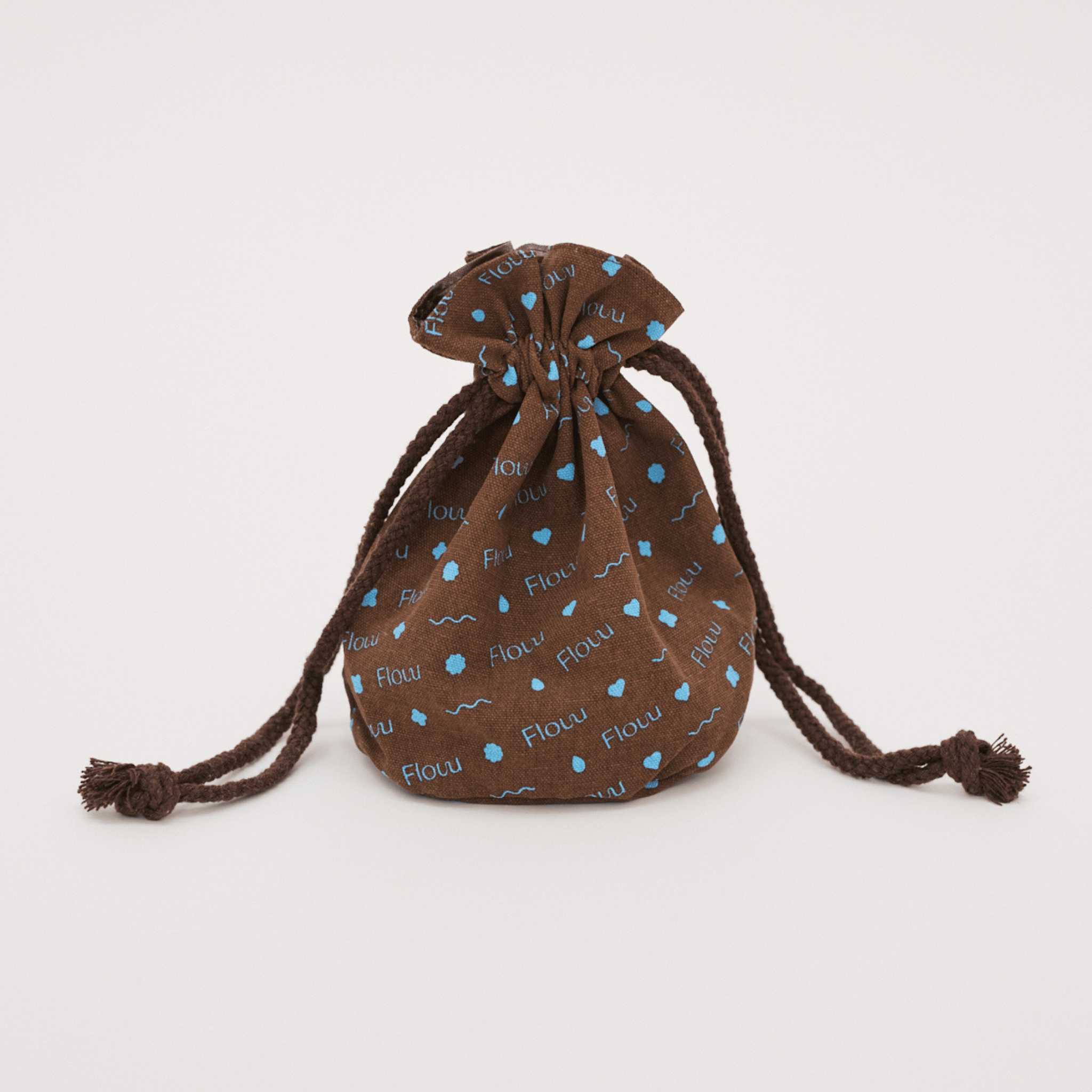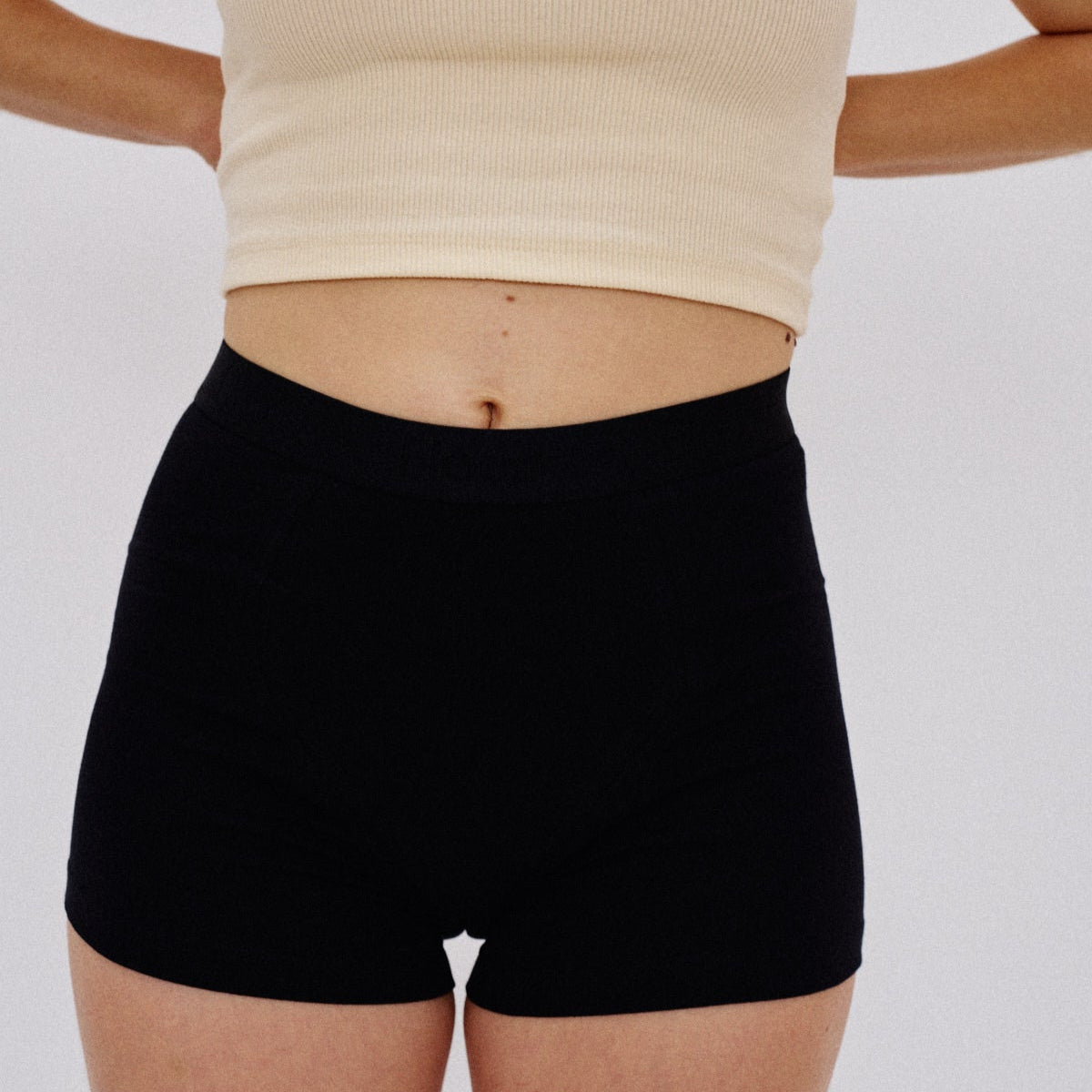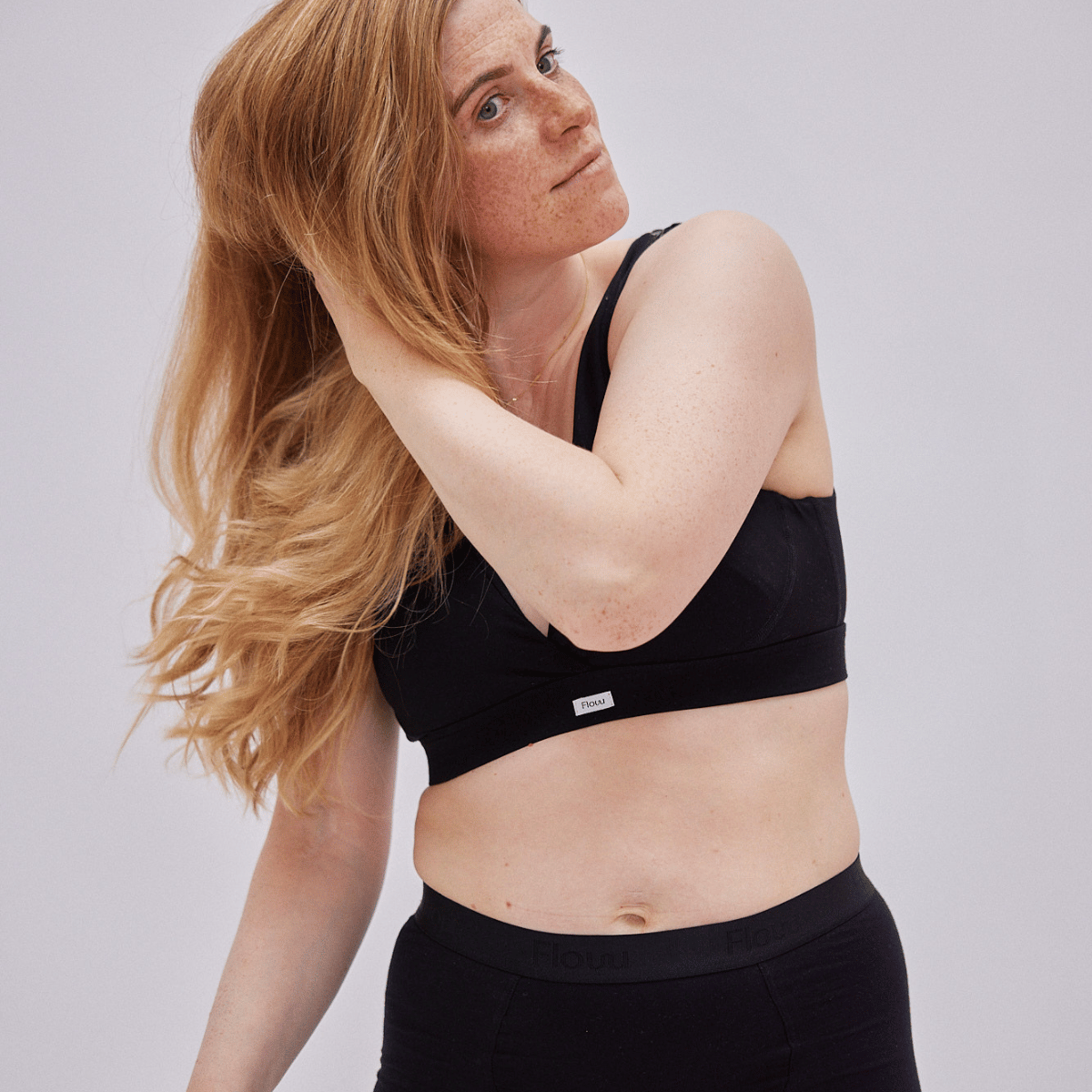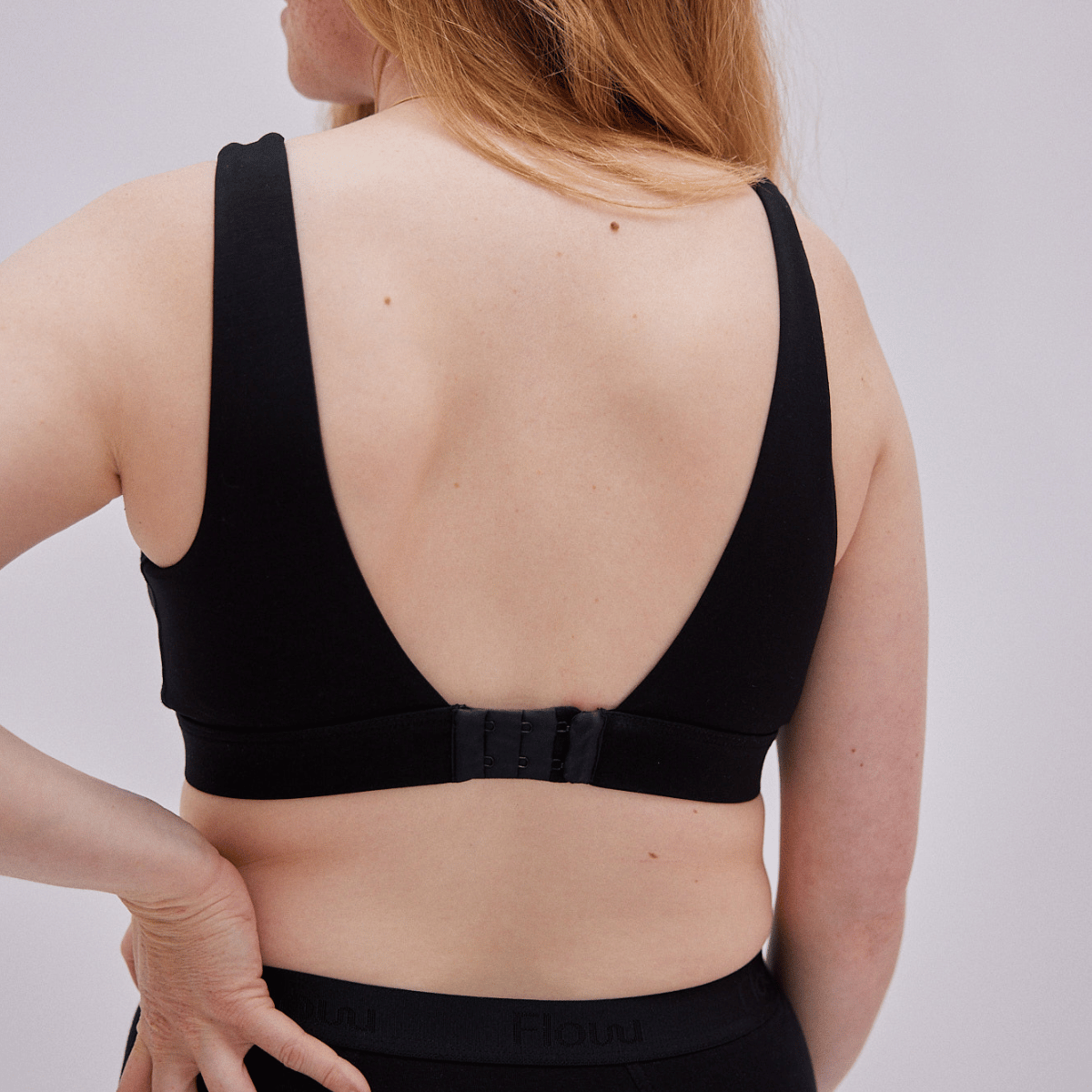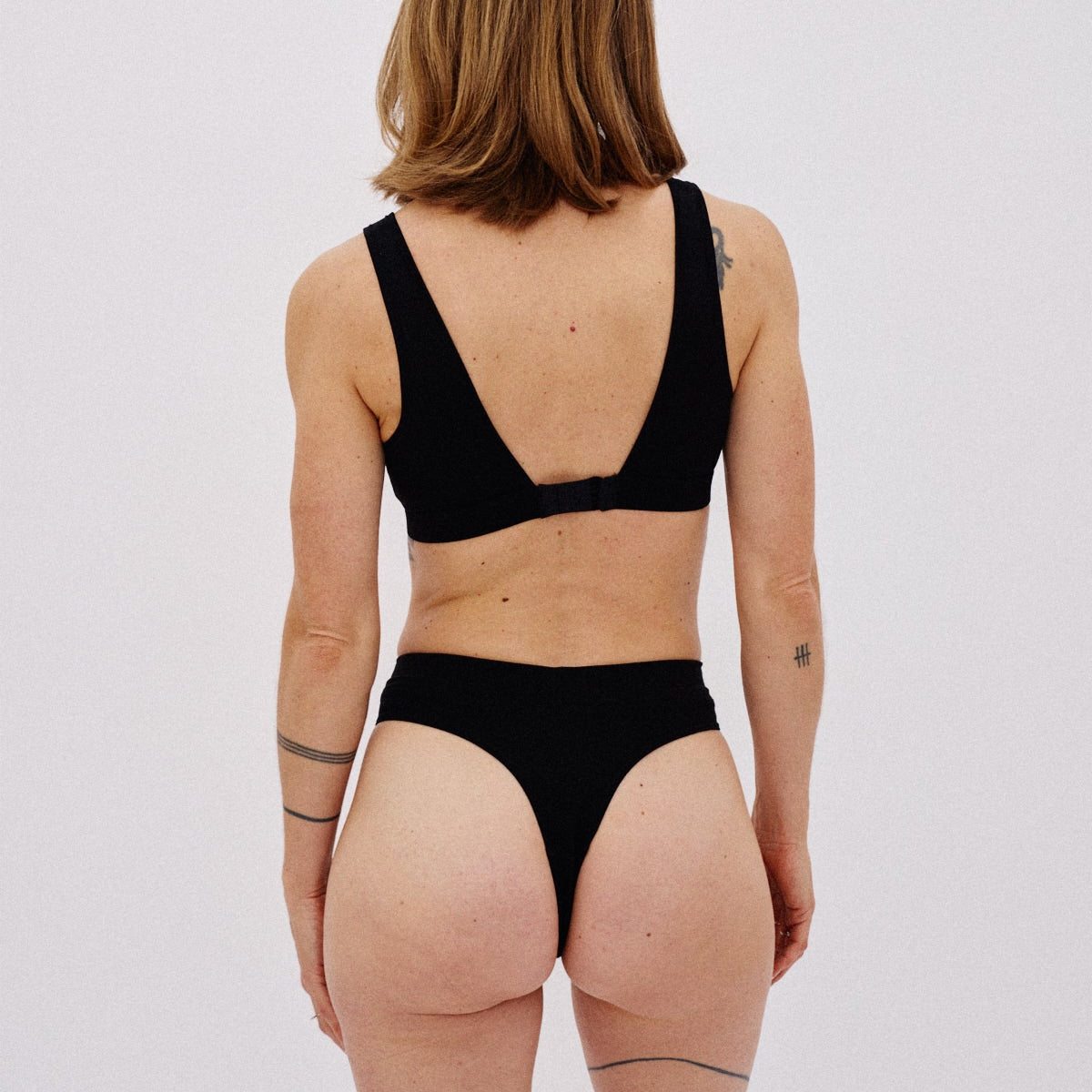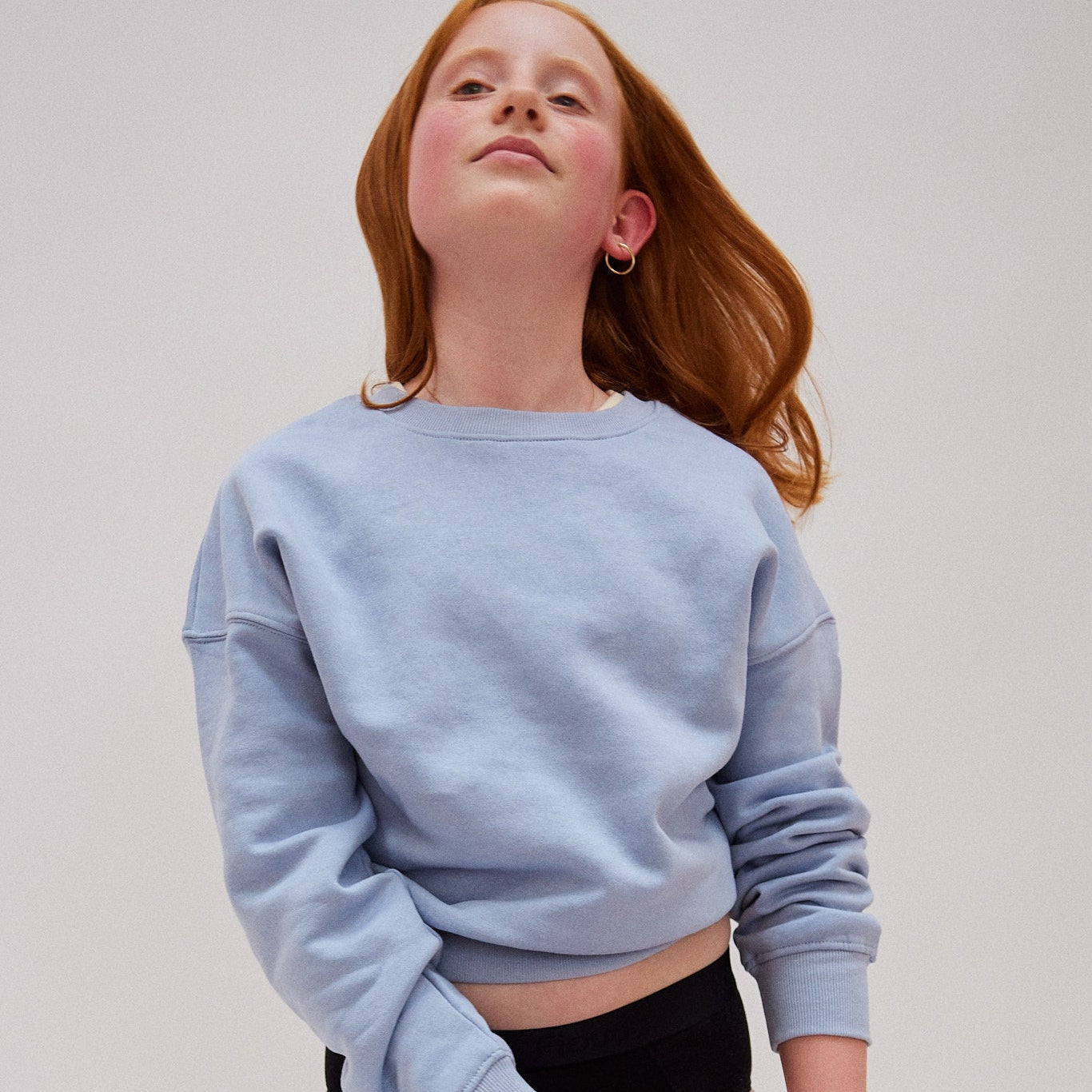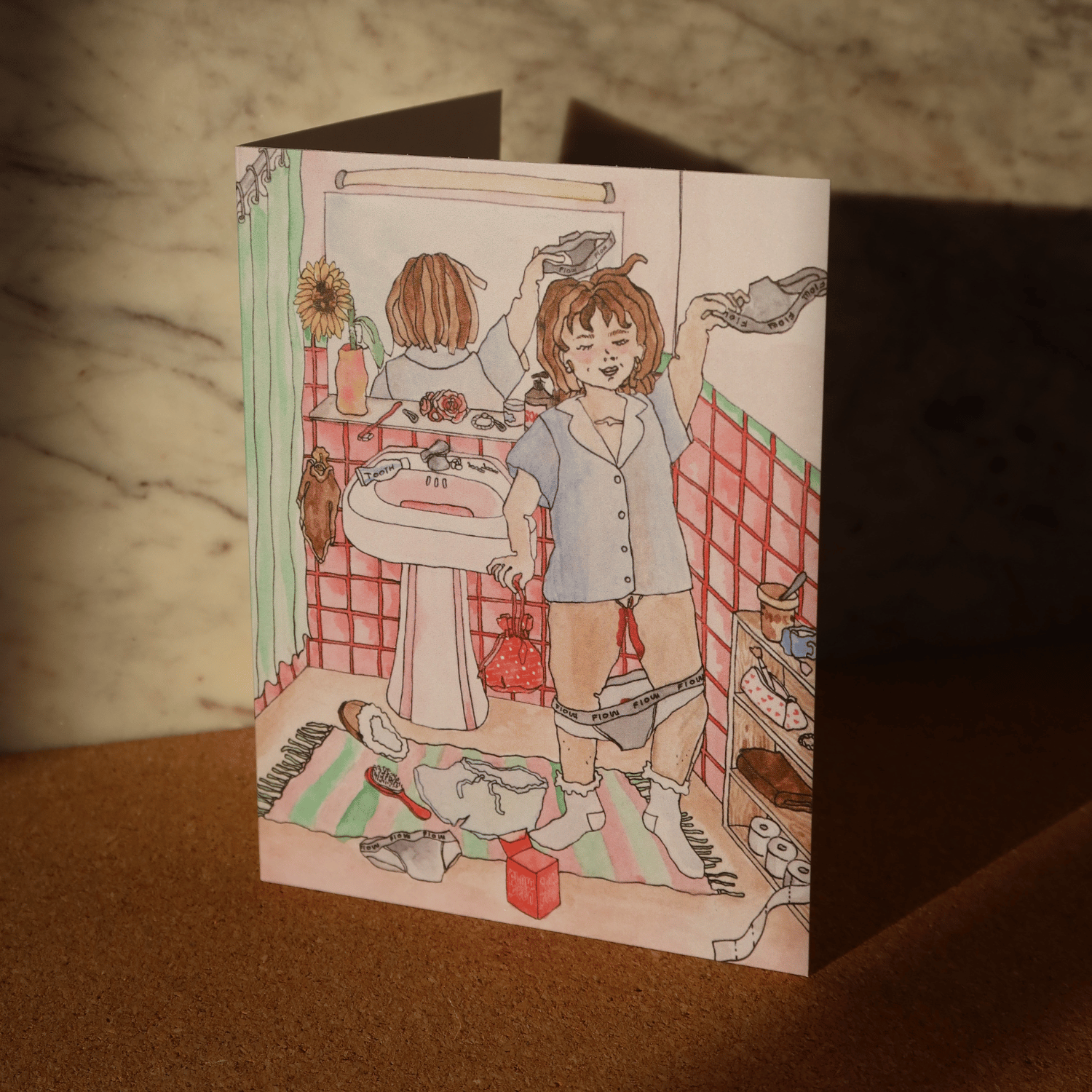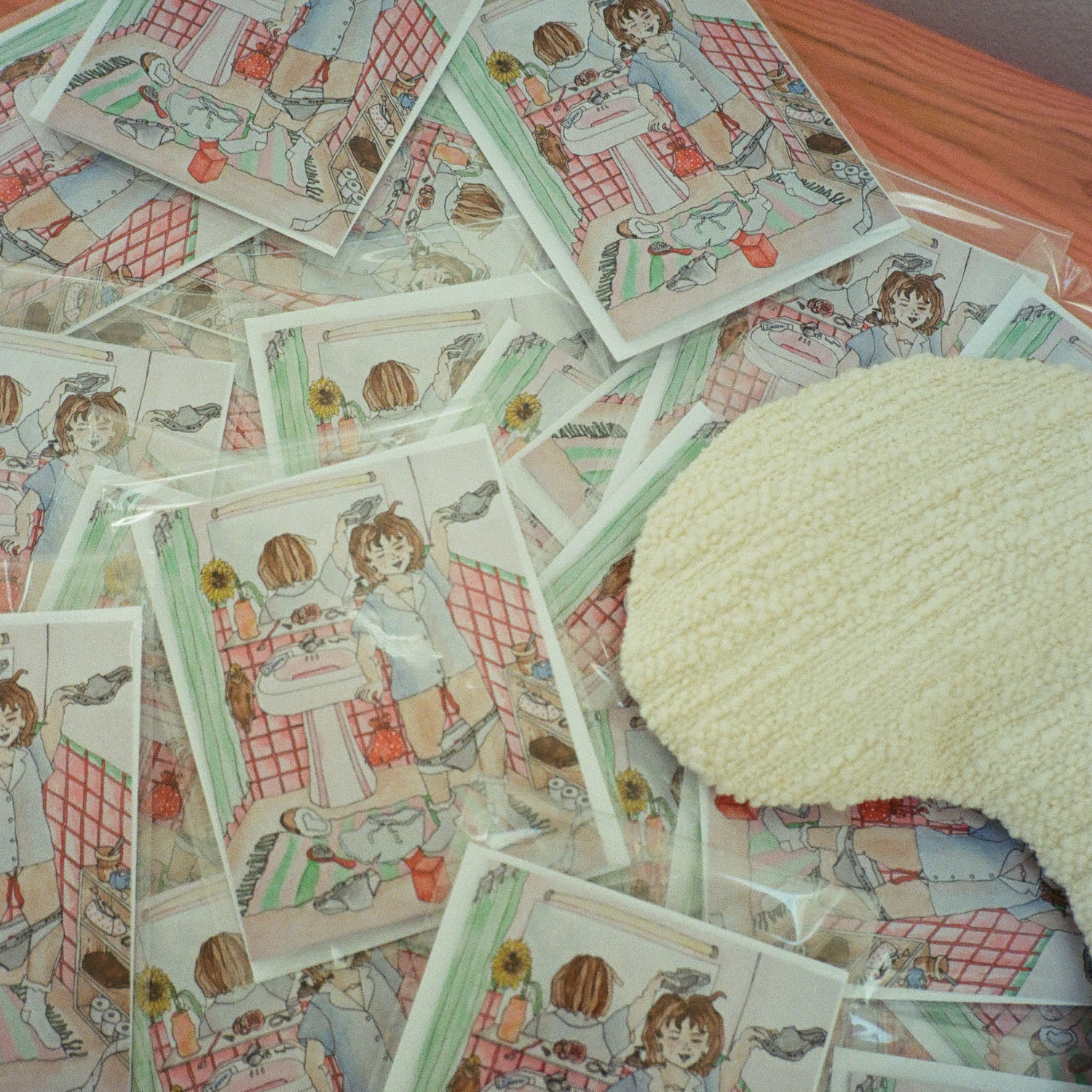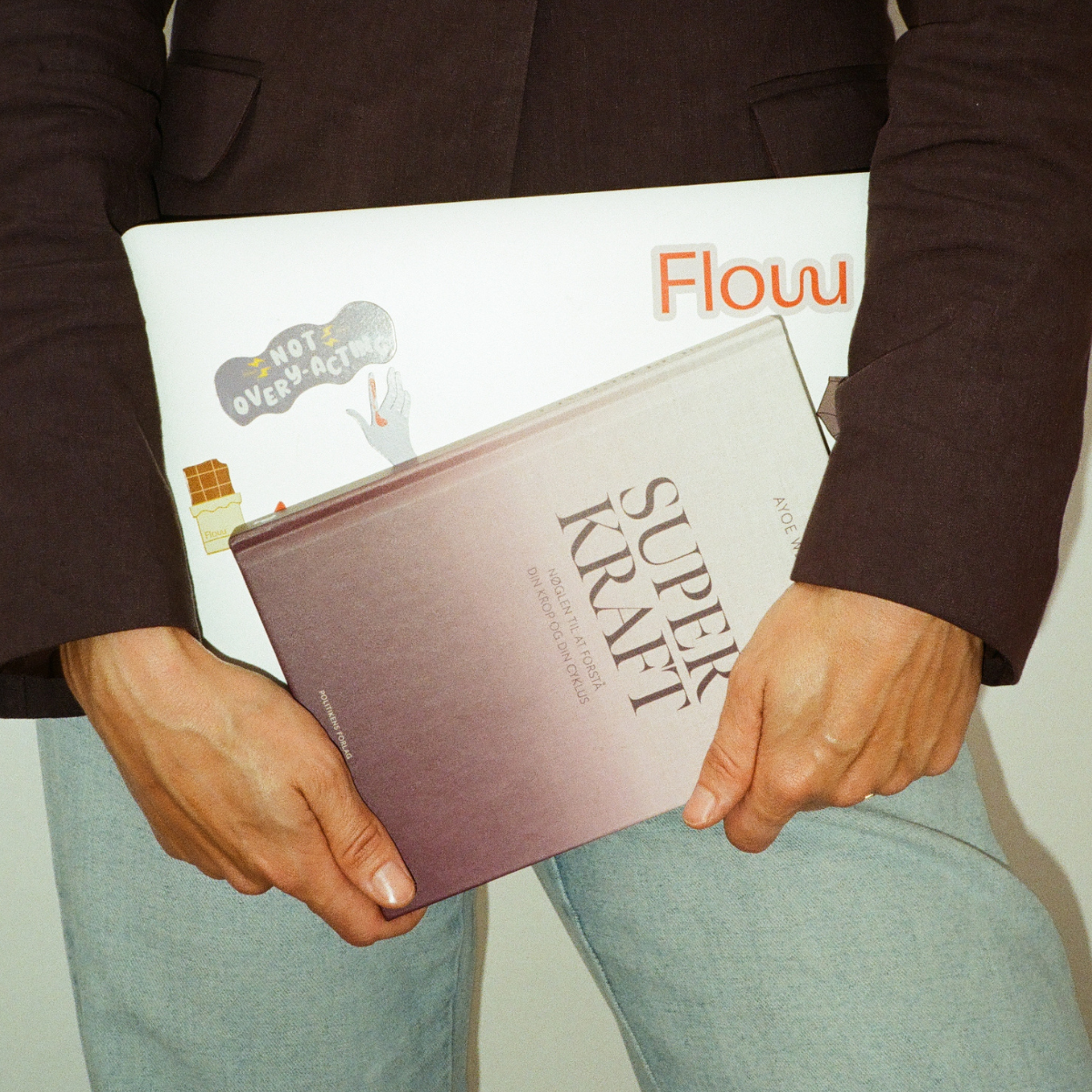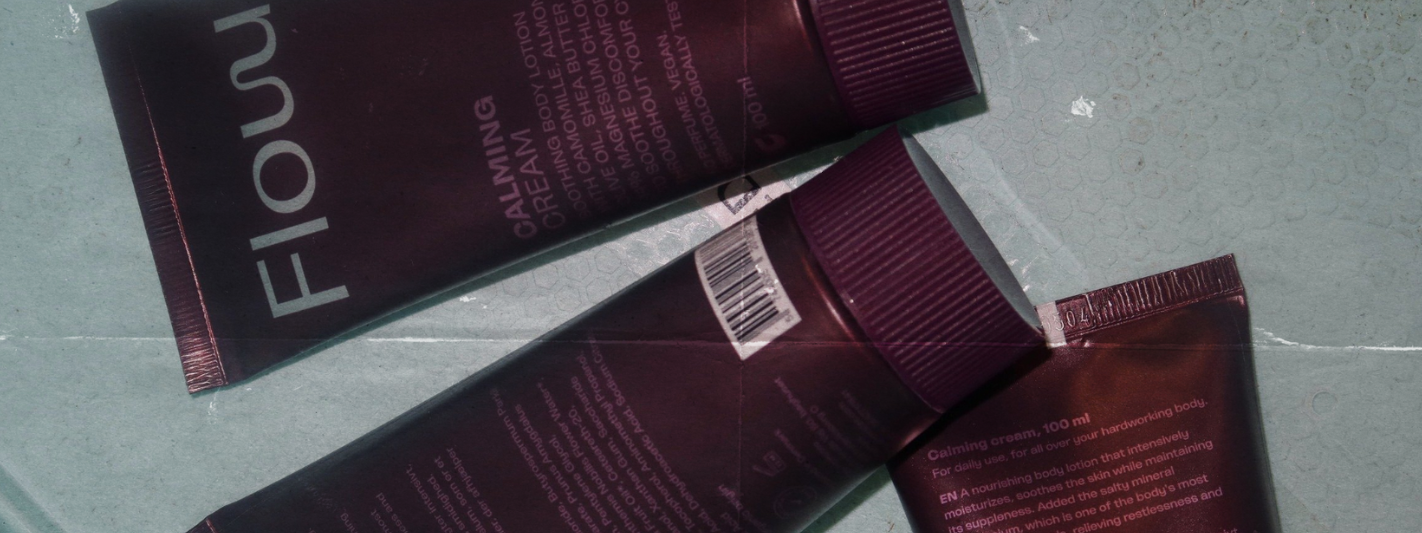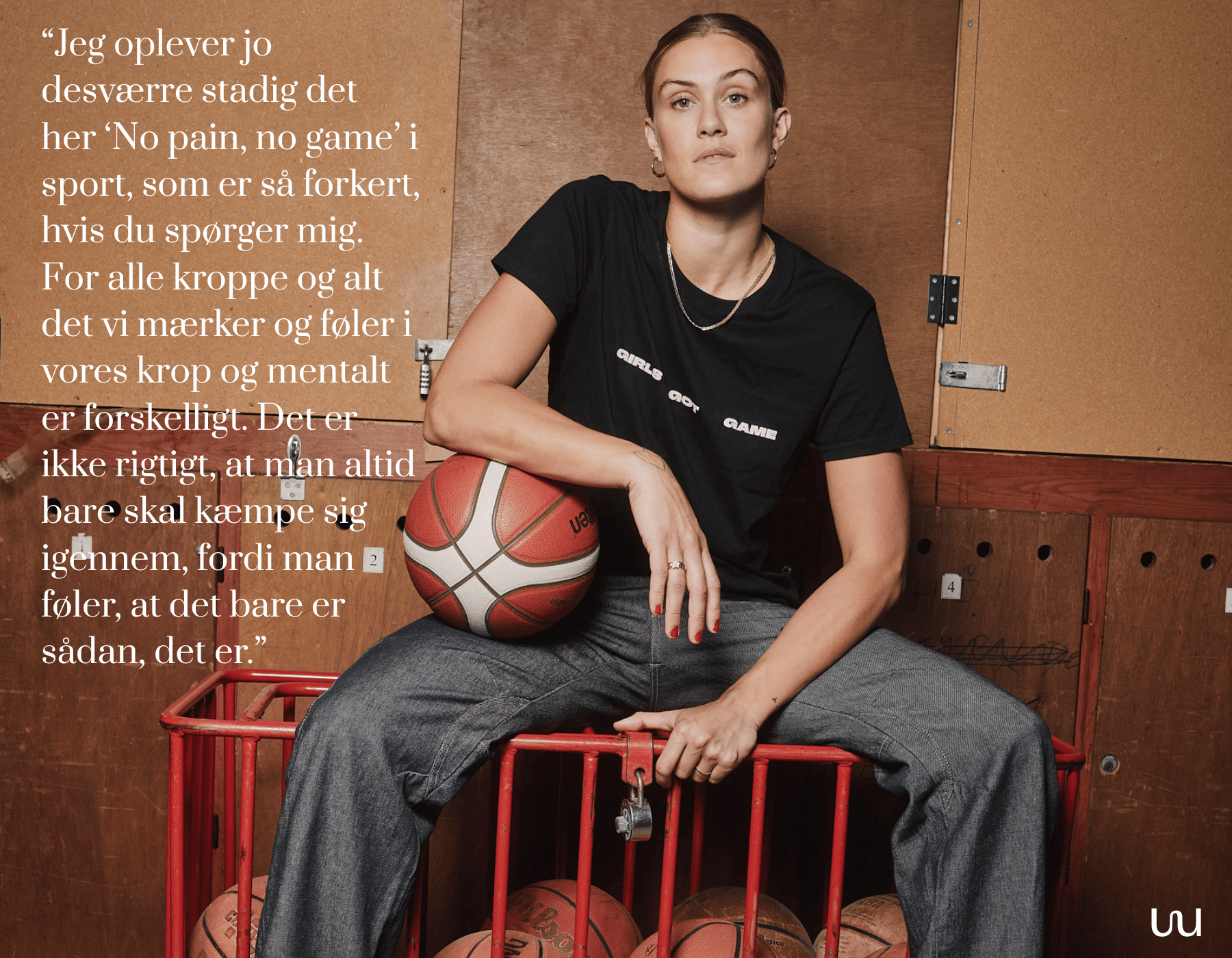Guide for men: How to support the women in your life through their cycle
Dear you who has never menstruated but loves someone who does...
This little guide is for you, to give you insight and tools to understand how a menstrual cycle is experienced. A little Father's Day gift from us to you.
A feminine and a masculine body are two completely different biologies. Whereas a man's hormones boom out of there in a predictable and linear way, and every day is more or less "same-same", women are cyclical creatures. Hormones rise and fall over a period of typically 28-35 days. And all the rises and falls in hormones reflect a fascinating and efficient machine that, month after month, prepares a woman's body to carry a pregnancy.
But for those who are menstruating, the changes can affect both mind, body, energy, focus - in fact, most everything, to both a large and small degree.
It makes a lot of sense to familiarize yourself with what it feels like when the hormone storm hits, and in all likelihood you have one or more women in your life who experience it every month – your partner, your daughter, your colleague, your friend.
You don't actually have to fix anything here - you just have to be there and show up with care.
Women's Cycle: Not Just "That Time of the Month"
The first thing you need to know is how the menstrual cycle works. There are two phases with two important milestones that separate the phases. The follicular phase from the first day of bleeding until ovulation - and the luteal phase from ovulation until the first day of bleeding. With ovulation and bleeding as the two "points of no return".
In each phase, major changes occur in the body, affecting everything from energy levels to emotions, appetite, sex drive, need for alone time and the desire for companionship. To facilitate understanding of what is going on in the body, it may make sense to divide the two phases into four seasons in total.
The bleeding (menstruation) - the inner winter
The bleeding increases the feeling of fatigue, low energy with a pronounced need for peace and warmth. But already around the third day, the level of estrogen, among other things, will begin to rise, and the surplus will begin to increase day by day.
Follicular phase - the inner spring
...and that brings us into the egg-maturing phase. Here energy and optimism will return, creativity will sprout. This is typically when you are most sociable and outgoing.
Ovulation - the inner summer
Ahh, the feeling of being Beyoncé, Taylor Swift, on top of it all and the world with it. The energy and excitement are at their peak. Self-confidence is high, skin is clear and beautiful, sex drive can be high. It's full speed ahead. But this phase is a short-lived affair of a day or two.
The luteal phase - the inner autumn
Yes, for about half of a cycle you are in the luteal phase, which brings increased sensitivity, progressively lower energy levels, fatigue, a need for greater structure and increased self-care. All the plans you made in the follicular phase can suddenly seem completely unmanageable. And then we come back to the bleeding.
A cycle is a very special control system, and it is nature's way of arranging us, where each change has a function. And the more we get to know the system, are met with care and support around our system, the greater well-being we will also experience.
What does it actually feel like to have a cycle?
How do you best explain that to someone who has never had a period? Hm... Imagine waking up and feeling a little different every day . Not because you're unstable – but because your body and your hormones work in waves. And even when you've been menstruating for ten years, each phase and energy can still catch you by surprise.
It can feel like a hangover without partying. Like having the flu but still having to perform. Or like being trapped in a body that doesn't do what you ask it to. Some days everything feels easy. Other days everything is heavy. There are periods of vitality and power – and periods of pain, nausea, migraines, crying for no reason, cravings for anything salty and chocolatey, and a need to just lie completely still and not be touched.
But the real pain isn't actually our cycles and our bodies, but being cyclical beings who have to fit into a linear society. And amidst all the hormones, we're still expected to smile, perform, respond "it's fine" and otherwise not bleed through.
Our current female prime minister also has a menstrual cycle, but we never see her do what her body asks her to do; rest, find peace, nourish her body with sensuality. Because we still live in a patriarchal social structure, where feminine values such as peace and rest are not honored. But imagine if she did, showed it - that would be exemplary.
5 things women wish men knew
So far, so good. You're right that it's not something we're imagining. The story of the 'hysterical woman' that literature and art and movies are full of is so passé. It's a way in which society has shamed women and made the way nature is designed wrong.
We haven't decided how the cycle is designed - nature is smart, all by itself. We have to be outgoing towards ovulation so that we can meet a partner. And after ovulation, the body calls for rest to protect a potential pregnancy (until the body perhaps discovers that it is not pregnant, and then the drop in hormones hits hard a few days before menstruation). Here are some extra points from us:
-
It's not "just blood" - it's hormones, pain, emotions, and physical labor. It's a societal structure that doesn't honor our system and make room for what nature calls for.
-
The cycle affects everything from sleep to sex drive – and it changes week by week. And just think, we have a menstrual cycle for about forty years.
-
We don't want pity - we want understanding. And preferably a heating pad. People suffering from endometriosis and PCOS in particular can experience very severe pain.
-
PMS is not a joke. It is a real hormonal condition. For some so severe that it is described as PMD = premenstrual dysphoria, which can cause depressive symptoms and is treated with antidepressants. It is typically more pronounced and severe for menstruating women with ADHD.
-
Talking openly about menstruation is not embarrassing – it is caring. Staying home for a day or two during your period is not truancy, it is a significant bodily need.
- Every cycle is different. And even your cycle can change over time. How long your cycle is, when you ovulate - it's not one size fits all. So be sure to ask us.
How can you support?
But hey, you can be a great partner! An ally. A great support. So here are some of our suggestions for how you can support us during our cycle.
🤝 As a partner:
-
Ask questions – and listen without trying to fix things.
-
Get a handle on your cycle calendar. Love can be a cup of tea on day 1. Understand how we change day by day, and then feel free to challenge our ambitions from the follicular phase as we enter the luteal phase. Make it okay for us to cancel and move around.
-
Give space when she withdraws – and presence when she has the energy.
-
Massage your lower back, buy the chocolate, change the bloodstained sheets without any drama.

👨👧 As a father of a menstruating child:
-
We will probably face the menstrual shame in society, but from home you should help make menstruation completely natural. Ask - make your child aware that you would like to learn about the cycle together with your child. In a way, you are just as new and green in it as your child.
-
Buy pads or menstrual panties without giggling. Ask if we are missing anything and make sure there are always menstrual products in stock - and make sure there is a bin in the bathroom for used menstrual products. Offer to rinse and wash your child's menstrual panties.
-
Say out loud how proud you are of your child. When the hormones are racing through your body, and it's all still so foreign and new and you haven't fully understood yourself yet, you can quickly feel wrong (many of us menstruating with 25+ years of experience still don't fully understand ourselves).
-
Buy books with information about menstruation for your child, and say you would like to read them when your child is finished. We highly recommend the book It's Just Blood.
💼 As a colleague or friend:
-
Make room for variation - some days you're in on the small talk by the coffee machine, other days you're not. It's not about "acidity" but about the body's shift from an extroverted to an introverted energy.
-
Drop the platitudes and silly "do you have the red" comments.
-
If you want to be a little extra, you can keep pads/tampons in the drawer. It's really caring. Just in case.
Why this matters
When you understand the cycle, you don't just understand a biological process – you understand something deeper: The rhythm of a woman. Her strength. Her needs. The way of being in the world when you have a completely different biology than yourself. In reality, this is not a woman's issue. But a love issue. To be curious and aware of the world around you.
We hope you have found some courage to support - not because you have to be a hero for us, but perhaps just a co-player. Someone who dares to ask, listen, accommodate. And maybe even talk to your own children. We will love you extra much for that.
Thank you for reading ♥️
Happy Father's Day from us. Thank you for continuing to be curious with us.
Thank you for wanting to learn. Thank you for wanting to listen. You are already well on your way to becoming the world's best (cycle) wingman.
xx Flow



